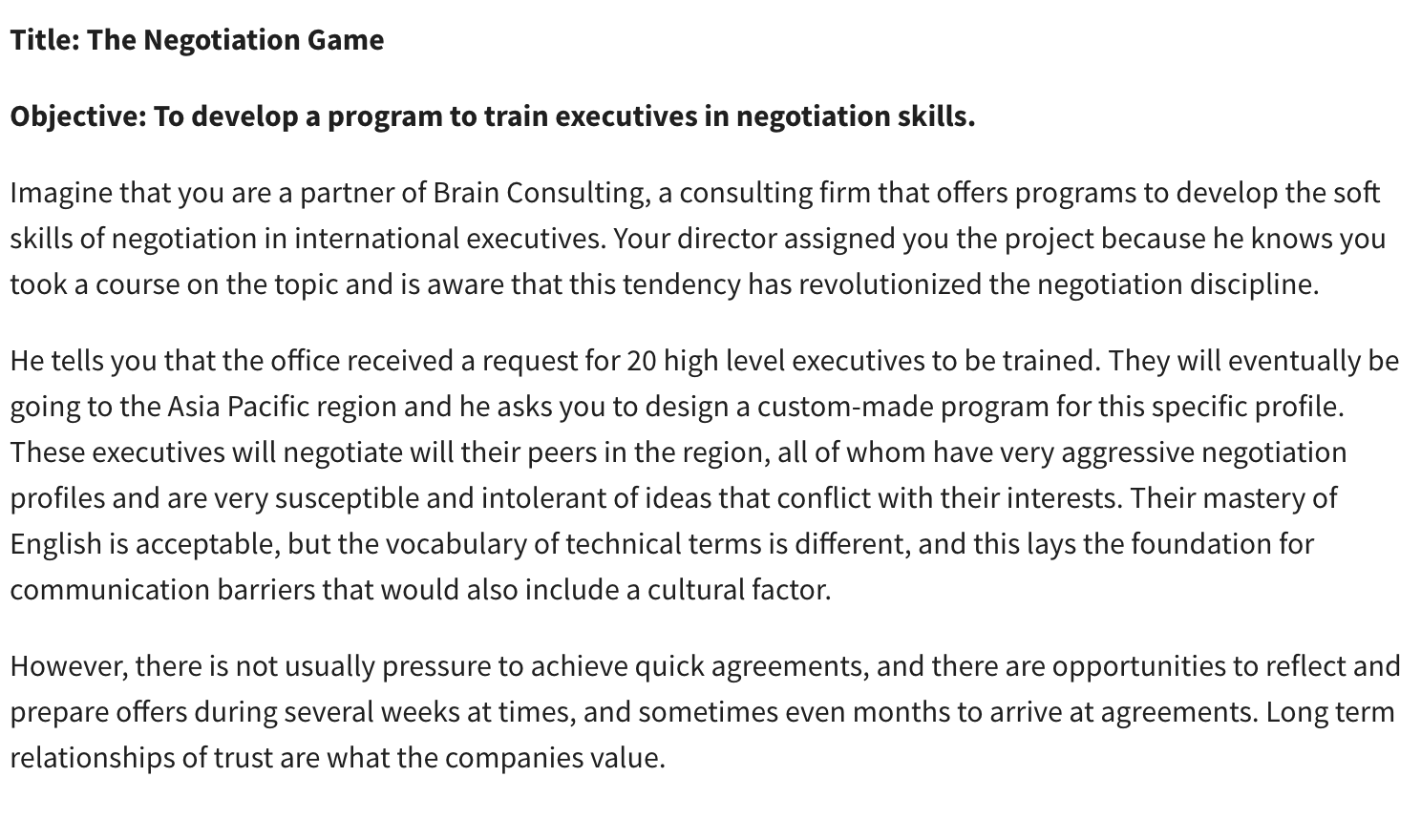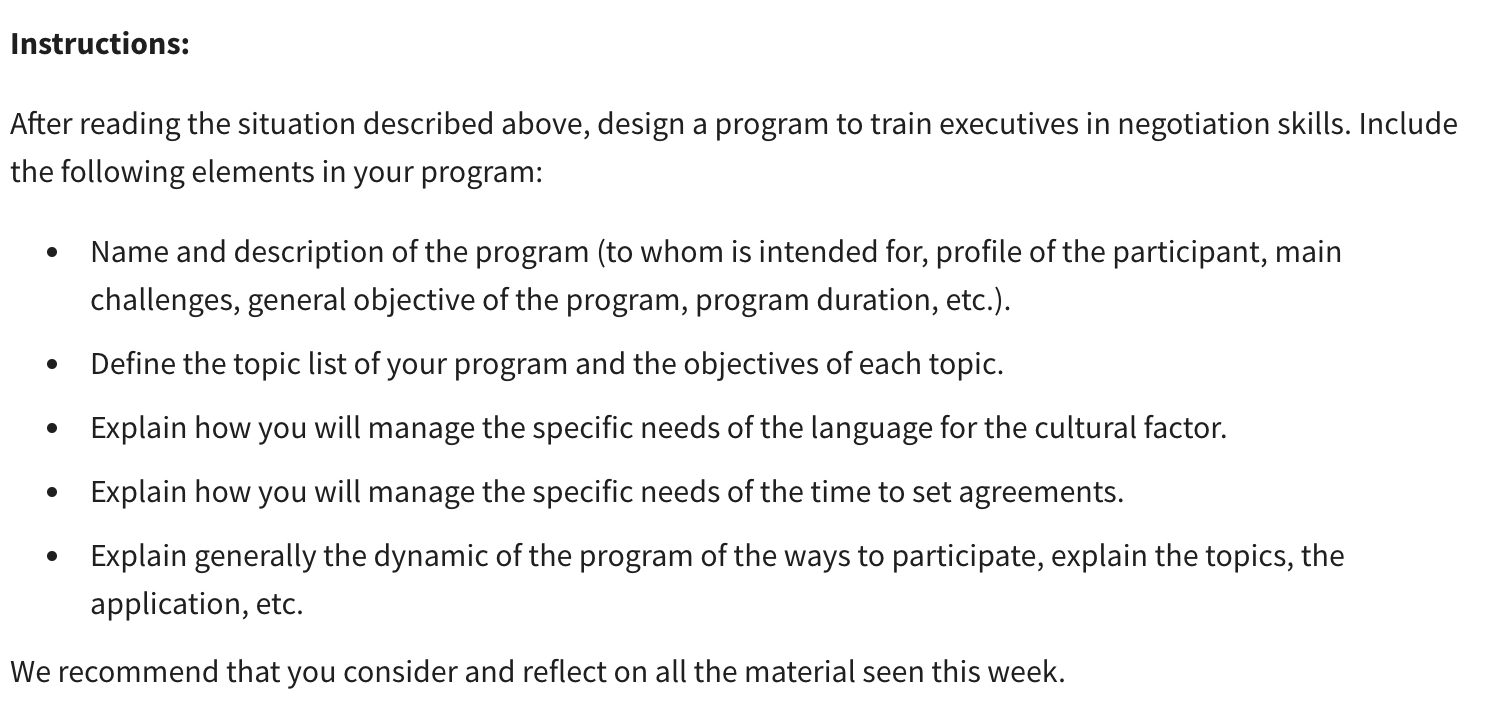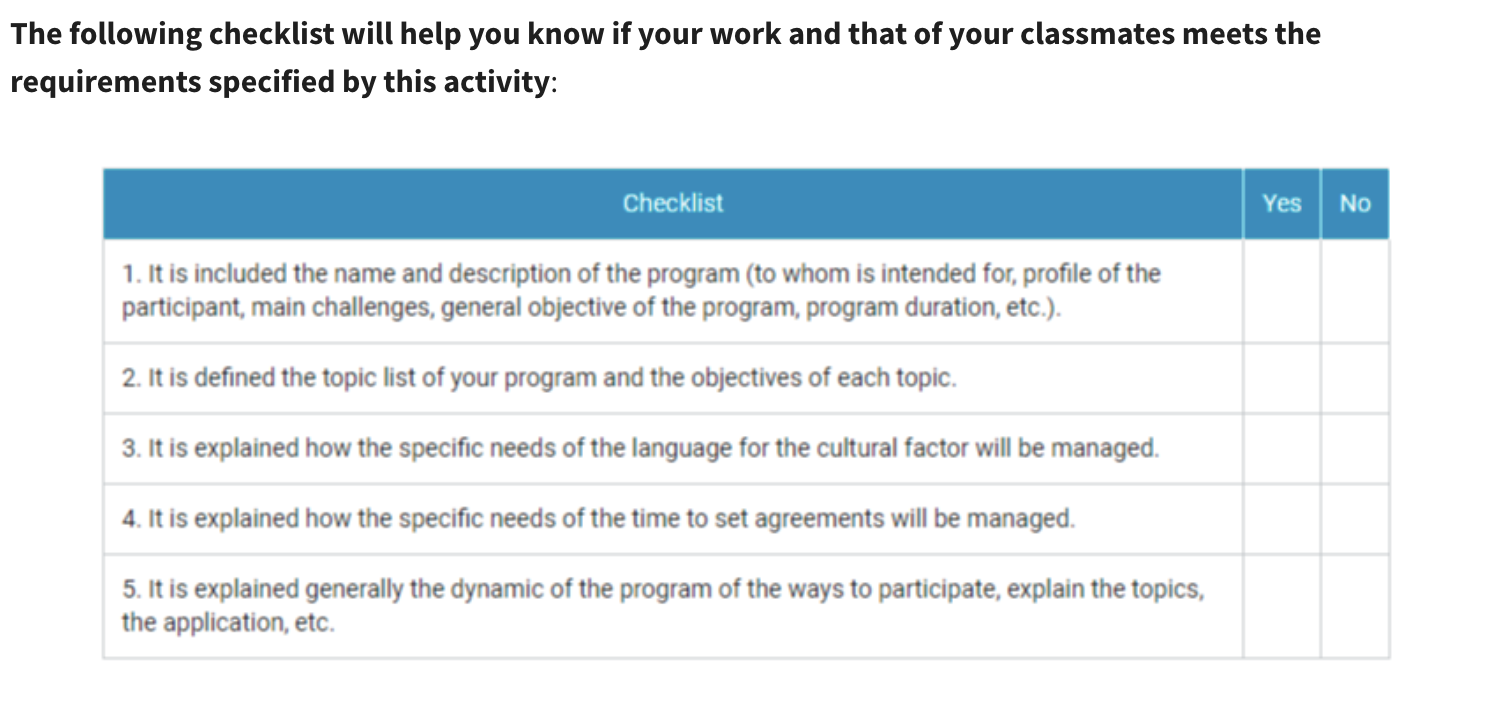Week 2 - Emotions in Negotiations
The second topic of the course focuses on effective communication in negotiations, highlighting the importance of three key pillars: Perception, Cognition, and Emotion. These three components are fundamental in negotiation, as social interactions are guided by how we perceive and analyze others, the situation, and our own interests and positions. Below is a summary of these components and the role of Emotional Intelligence (EI) in negotiation:
-
Perception:
- Perception is a physical and psychological process that creates a formal representation of what our senses capture. Perceptions vary among individuals, who may assign different meanings to the same situation. Personal needs, desires, motivations, and experiences can create predispositions towards the other party in a negotiation, which can lead to biases and errors in perception.
-
Cognition:
- Cognition in negotiation refers to how effectively individuals process the messages they receive during the negotiation. Biases or preconceptions in messages, whether inadvertent or intentional, can impair effective communication. Some common cognitive biases in negotiation include anchoring, irrational escalation of commitment, excessive confidence, the myth of the fixed pie, and self-confirmation.
-
Emotion:
- Emotions significantly influence how we perceive reality. They become more intense during interpersonal interactions, like negotiations. Research shows that many decisions are made automatically and emotionally, often without considering available information. Positive emotions tend to foster effective negotiations and encourage long-term, trust-based relationships. Negative emotions often lead to short-term results without regard for potential damage to relationships and can escalate conflicts.
-
Role of Emotional Intelligence (EI) in Negotiation:
- Promoted extensively by Dr. Daniel Goleman, Emotional Intelligence is a critical skill for negotiators. It involves being aware of our own emotions and understanding how they affect others. EI enables individuals to regulate their behavior to find common ground with the other party, fostering constructive activities and personal development. By employing EI as a negotiation strategy, negotiators can learn to identify and manage their emotional expressions (both verbal and non-verbal), positively or negatively influencing the other party’s behavior, as people tend to mimic the emotions they perceive.
-
Impact of Lack of Communication Skills:
- A negotiator without effective communication skills can make errors due to inaccurate perceptions or cognitive biases, especially when emotions are not managed appropriately.
-
Developing EI as a Negotiation Strategy:
- Cultivating Emotional Intelligence as a negotiation strategy encourages empathy, understanding, and trust among negotiators. This is seen as a critical aspect for avoiding misunderstanding and promoting successful outcomes in negotiations.
In summary, effective communication, deeply intertwined with Perception, Cognition, and Emotion, is central to the negotiation process. Developing Emotional Intelligence as a negotiation strategy is key to understanding and managing these components, fostering empathy and trust, and ultimately achieving more successful negotiation outcomes.
Perception
Perception when faced with a stimulus; for example, a buyer explaining the reason for his offer, and the reaction of the seller who tries to exert tension in the opposite direction.
📖 Authors Lewicki, Barry, and Saunders in their book Negotiation, (2006)
- analyze negotiation from a systemic perspective, ranging from communication to the use of power in negotiation, ethics in negotiation, and the importance of relationships in a negotiation
The barrier of distortion - Perception is a physical and psychological process that creates a mental representation of what the senses capture. Perceptions vary from person to person.
- Stereotypes are a common distortion of perception. They occur when we generalize some aspect (usually negative) of the human condition and we apply it to individuals that belong to a specific group, whether gender, nationality, profession, and on and on.
- Selective perception happens when we see things our way, “the only correct way,” and ignore any points of view that differ from ours.
Cognitive bias
The barrier of bias - During the negotiation process, the negotiators use information that they process to make decisions. There is a tendency to process information incorrectly when there are cognitive biases, which hinder the effectiveness of the negotiation.
Steps to minimize effects of perception and bias
Listening is more important than speaking
- Listen carefully to the other party’s arguments and analyze the logic of their reason.
- Clarify the proposals you don’t understand with Wh-questions: how, why, where, when, and why.
- Note the important topics that are priorities to both parties. Question the generalizations and challenge the suppositions.
- Keep calm: be assertive, but not aggressive. Use tact and diplomacy to diffuse tension.
- Remember that “no” is a small word with a lot of power.
Skills to develop - Emotional Intelligence, Self-Awareness, Self-Control, Social management
The course continues with the subject of managing emotions in negotiations using Emotional Intelligence (EI). Here is the summary:
-
Emotional Intelligence as a Skill:
- Emotional Intelligence can be developed and is an essential complement to a rational focus in negotiation. It involves recognizing, understanding, and managing one’s own emotions, and similarly recognizing, understanding, and influencing the emotions of others.
-
Three Pillars of Communication:
- Effective negotiation requires understanding EI in the context of the three pillars of communication: Perception, Cognition, and Emotion. Negotiators’ perception guides them to classify, select, and interpret stimuli. Distorted signals can affect the emotional landscape and hinder the implementation of EI strategies in negotiation.
-
Cognitive Biases and Emotions:
- When cognitive biases, like erroneous interpretation of information, are present, they can lay the groundwork for frustration and conflict, feeding negative emotions.
-
Strategies for Managing Emotions:
- Observation: Professor Alison Wood of Harvard Business School suggests adopting good observation habits, similar to an “owl”. This involves perceiving and analyzing the other party’s body language, tone of voice, and choice of words. When verbal and non-verbal cues are inconsistent, it is beneficial to ask specific questions to clarify the other party’s perspective and encourage sincere expression.
- Influencing Emotions: The second strategy is not being afraid to directly influence the other negotiator’s emotions. This is not manipulative when the intent is to reach a mutually beneficial agreement. For example, injecting humor or empathy can change the tone of an interaction, while expressing displeasure might encourage a more cooperative stance from a unilateral negotiator.
-
Complexity of Emotions:
- Emotions in negotiations are diverse and complex, including anger, fear, anxiety, frustration, guilt, regret, joy, and surprise. These emotions are influenced by factors such as personality, moods, culture, values, and social norms.
-
Handling Anger:
- Anger is a particularly challenging emotion to manage in negotiations. The recommendation is to foster harmony, compatibility, affinity, and empathy throughout the negotiation process. Even when the other party’s hostility seems unjustified, understanding their perspective is key, as most negotiations are not instantaneous and unfold over several meetings, providing time for negative emotions to dissipate.
-
Emphasis on Training:
- Due to the intricate relationship between emotions, personality, culture, and negotiation outcomes, the course encourages further training to develop skills in EI for effective negotiation.
-
Closing Note:
- The closing note is a friendly farewell: “Hasta la vista, amigos!” which translates to “See you soon, friends!”
In summary, the course emphasizes the importance of Emotional Intelligence in negotiations, guiding participants to understand and manage their own emotions and those of their counterparts. It highlights the necessity of developing these skills, given the complexity of emotions and their significant impact on the negotiation process.
[[d07GCmc6SPGOxgpnOtjxHw_33fe64d7b3024e38ab8c65bf1df9bd20_The-strategic-use-of-emotions-in-negotiation.pdf|The strategic use of emotions]]
- Negative influence
- They can distract our attention from the substantive objectives of a negotiation.
- By revealing our emotions, we expose ourselves to being manipulated.
- Emotions inhibit reasoning.
- Emotions can get out of control.
- Positive influence
- Awareness and opening up of our emotions leads to understanding and empathy towards the interests and needs of other people.
- Through our emotions, we can communicate another element in a negotiation, our position.
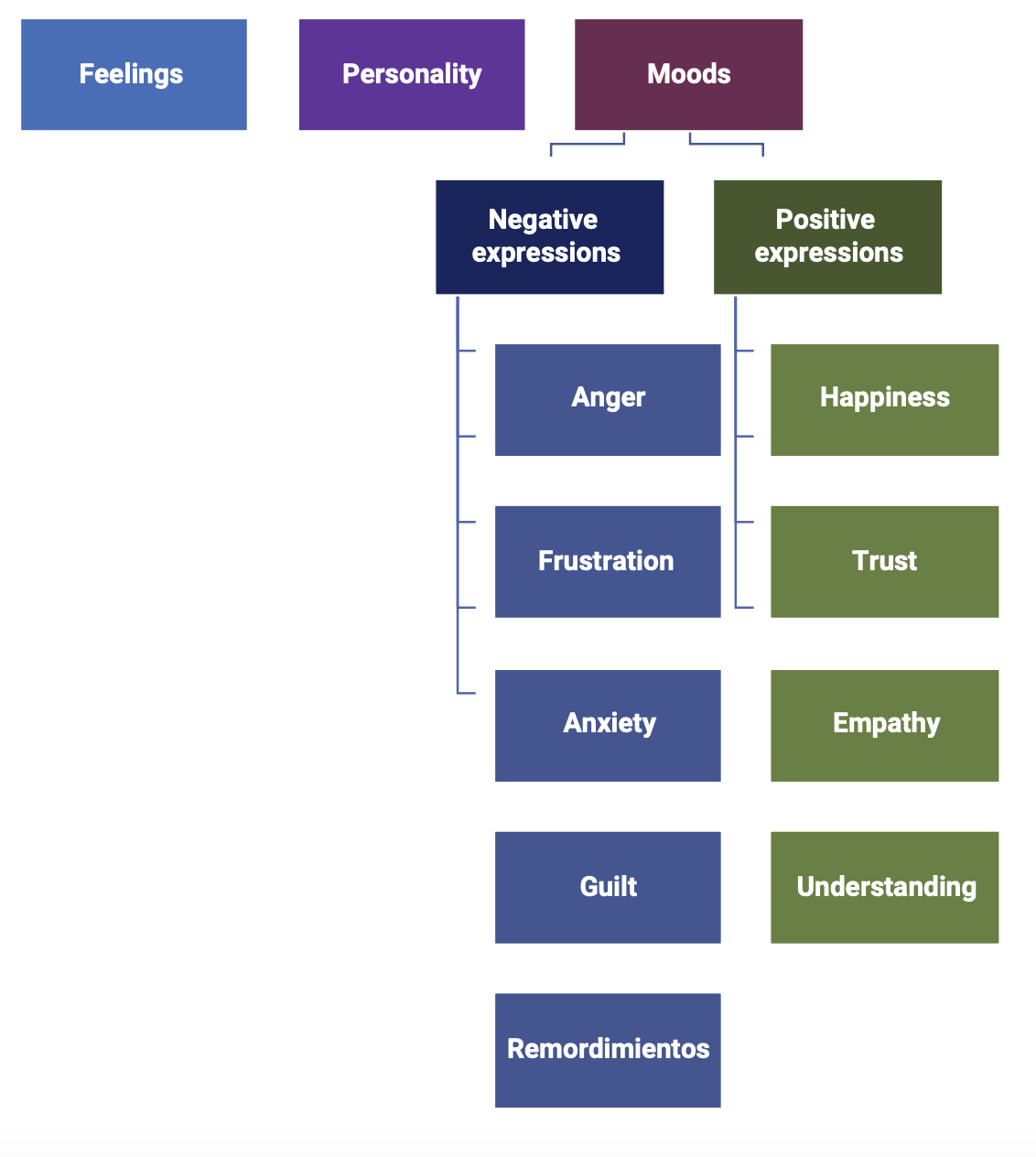
Positive moods (generally) lead to integrative negotiations, while negative emotions cause distributive negotiations.
A negotiator with emotional intelligence can identify and program emotional expressions (verbal and non-verbal) to re-enforce and emphasize behaviors (positive and negative) in the other negotiator
research reveals that mimicking emotions is often shown through body language and facial expressions, which establish very powerful emotional “connections.” These connections help to create empathy and strengthen trust among negotiators
An emotionally intelligent negotiator is capable of perceiving the emotional state of his counterpart and, in an effective way, respond in a timely manner. At the same time, the negotiator is aware that his own emotional state greatly influences the mood and behavior of other people because of the contagious nature of emotions. These people have the skill of managing complex negotiations and achieving collaborative agreements among people with antagonistic postures.
📖 Negotiating with Emotion by Kimberlyn Leary, Julianna Pillemer, and Michael, Wheeler
6 Phases to prepare for a negotiation
- What feelings do I want to display in the negotiation?
- Why?
- What can I do ahead of time to asume the emotionally ideal state?
- What could make me lose control in the negotiation process?
- What can I do in the middle of the negotiation to regain control?
- How do I want to feel after the negotiation process has concluded?
How to avoid misunderstandings in communication
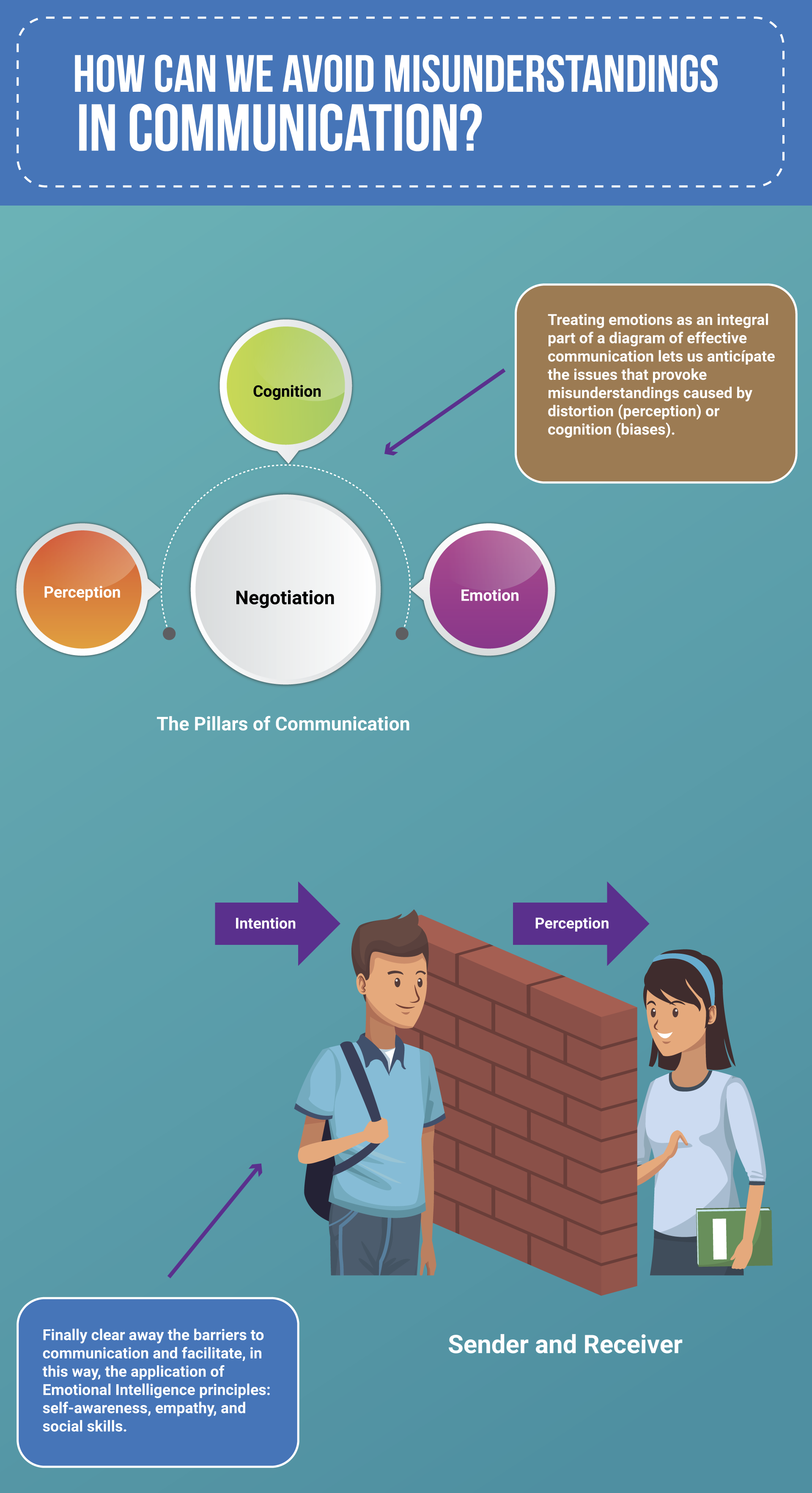
Bigger exercise instructions
